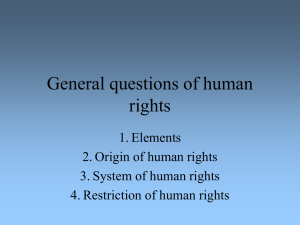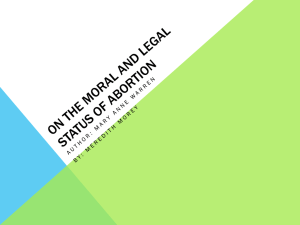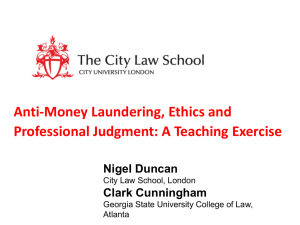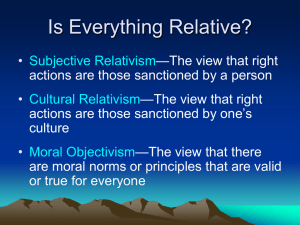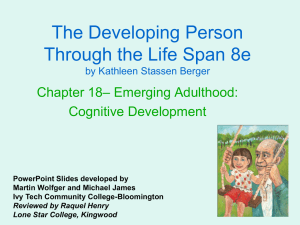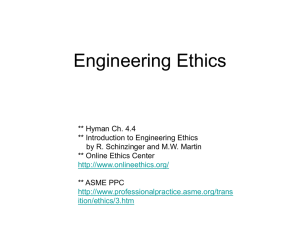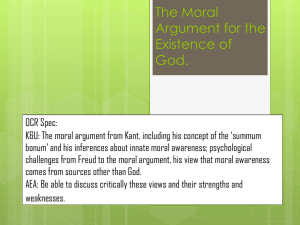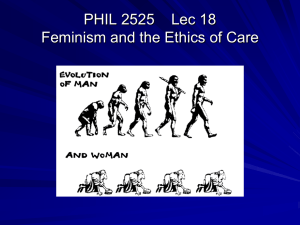Ed-de-Jonge presentation at ENSACT Congress 2013
advertisement
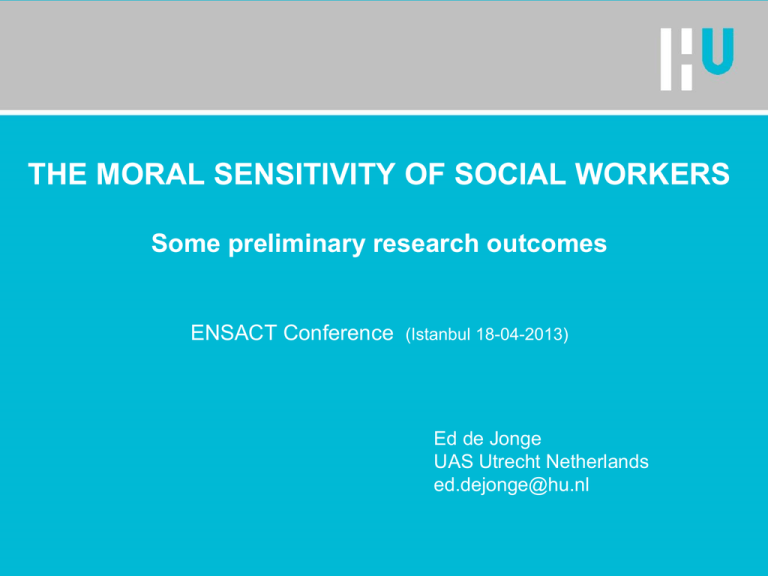
THE MORAL SENSITIVITY OF SOCIAL WORKERS Some preliminary research outcomes ENSACT Conference (Istanbul 18-04-2013) Ed de Jonge UAS Utrecht Netherlands ed.dejonge@hu.nl CONCLUSION (cf. Socrates) Cooperation in ethical research by teachers/researchers and students/practitioners can be an excellent way of teaching and learning INTRODUCTION: research Main objective: improving the moral expertise of (ambulatory) social workers, and thereby the moral quality and effectiveness of social work practice Cooperation (co-financed by SIA-RAAK): Research group: innovation of social work; subgroup: moral decision making (UAS Utrecht Netherlands) Six regional welfare organizations (Cumulus, Leger des Heils, LSG Rentray, Sherpa, Stade, Zonnehuizen) Duration: 1 year of preparation (2011-2012) 2 years of research (2012-2014) NB: continuation of cooperation MORAL EXPERTISE: research outset Improving moral expertise presupposes knowing what moral expertise is Main research activities Literature search Lots of (informal) discussions Conceptualization Outcome: learned ignorance (cf. Socrates) We do not know exactly just what moral expertise is, but we are convinced that at least 5 elements are important MORAL EXPERTISE: 5 elements Identity (being): professional and personal, values and virtues, moral consciousness, self care Motivation (wanting): inspiration, passion, calling, commitment Sensitivity (sensing): emotions, intuitions, instincts Frames of reference (thinking): vocabulary, notions, concepts, theories, viewpoints Skills (doing): imagination, reflection, discussion, deciding, justifying, self management MORAL SENSITIVITY Intention: developing a practice based theory (cf. Socratic midwifery) Method: cooperation of 3 researchers and 12 practitioners Activities: Reflective writing: describing a moral issue Reflective writing: noticing the moral dimension Synthesizing: first draft Reading: correct and complete? Discussion: amendments Etc. (version 3) MORAL SENSITIVITY: reported aspects Failure of expertise (cf. professional wisdom) Failure of judgment: good, values, rules, virtues, interests, alternatives, consequences Failure of decision making Failure of taking actions Emotionally being moved Basic emotions: restlessness, discomfort, anxiety, irritation, ambivalence Signalling emotions: worries, fear, suspicion, anger Secondary emotions: guilt, uncertainty, failure, disappointment, sadness, pain, desperateness MORAL SENSITIVITY: aspects of ethics work Professional nature of emotionally being moved Self-consciousness Reflection Self directing Preconditions for moral sensitivity Taking responsibility for the situation Being open to the situation Having real contact with the client(s) MORAL SENSITIVITY: positive side effects of research Professionalization and empowerment of practitioners: Becoming more aware of their own moral expertise and the complexity of it Being able to make more consciously use of several elements of their moral expertise in their work Being able to speak and discuss about moral issues more in connexion to themselves as professionals and as persons Becoming a role model in their professional team CONCLUSION (cf. Socrates) Cooperation in ethical research by teachers/researchers and students/practitioners can be an excellent way of teaching and learning COMMERCIAL BREAK Do you believe that 1 + 1 = 3? Have you always wanted to cooperate in ethical research? Please contact us: ed.dejonge@hu.nl For sharing knowledge is multiplying knowledge! SOCRATIC QUESTION Concerning moral sensitivity: Can social workers be too sensitive?


